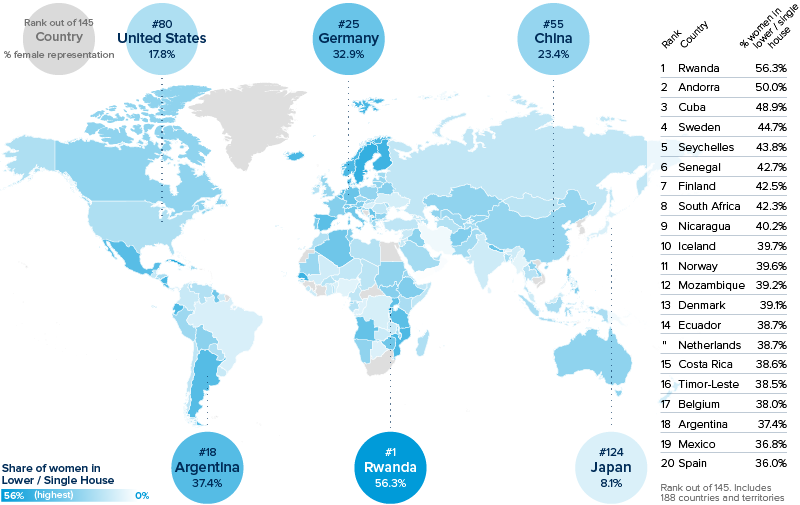Women's political role will grow slowly
Female representatives in Lower or single House (%)

Source: Inter-Parliamentary Union
Outlook
The global average for women in legislatures has risen from 15.2% in 2003 to 21.4% this year, but progress has plateaued in recent years. Claims that democratic governments are fully representative or that good governance has been achieved will ring hollow so long as half the population is still under-represented.
Improvements in women's rights have developed unevenly across countries and regions, defying efforts to provide a single solution that would boost women's political representation. However, political will among governments can often increase women's participation in public life -- whether economic or political. In Latin America, two-thirds of the population consider gender quotas generally beneficial to the region.
Impacts
- The top-ranking African countries -- such as Rwanda -- use quotas, but have yet to significantly change wider societal norms.
- Despite vocal female empowerment campaigns, progress in the United States will be slow without greater public and private initiatives.
- Considering their economic development, Japan lags behind on gender parity in politics -- only 8.1% of MPs are women.
- Japan's low female labour participation rates mirror this. Tapping into this population could substantially boost Japan's economic growth.